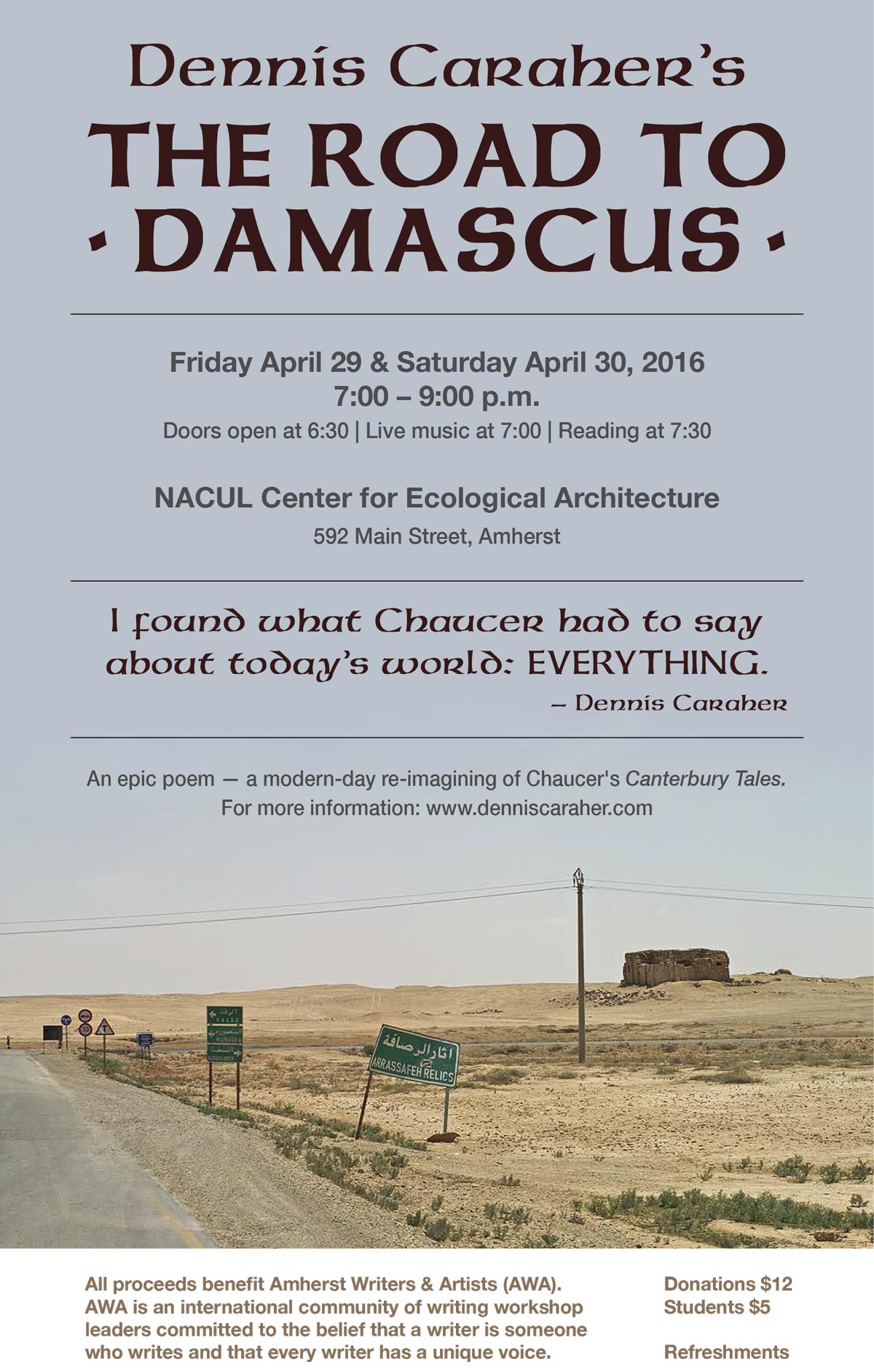
When I was an English major at Iowa State University in the late 60’s, I was distressed to discover that a degree requirement was that I enroll in an overview of Geoffrey Chaucer’s “The Canterbury Tales”. This was a period in the academic community when students were demanding that courses be more relevant to our emerging selves. How on earth could I benefit from a work written a half century before? And what was worse, the course was to be conducted in its original language: Middle English. Although at that time, I laced education, I did not lack for chutzpah and I prepared myself to verbally attack this, without question, clueless and ancient professor. What could Chaucer possibly have to say about Vietnam, race, sexism, classism?
Before I launched my assault, I thought it best that I at least listen to the first lecture, as I would surely gain more ammunition. I forget his name but not his face, as he breezed into the room. He was smiling. Beaming. He wore a bow tie! Everyone knew that professors wore jeans so they could signal that understood us. And then he began speaking a language that was wholly unfamiliar but still accessible. It was a sort of English but much more musical.
WHAN that Aprille with his shoures soote
The droghte of Marche hath perced to the roote
And bathed every veyne in swich licour,
Of which vertu engendred is the flour
I loved the sound, the rhythm, the words, the passion with which he read. Thankfully for all involved I held my tongue. For the first time in ages, I didn’t want to hear my words, I wanted to hear Chaucer’s and I wanted to sound like that. And as we slowly read the Prologues and a sampling of the Tales, I found what Chaucer had to say about today’s world: everything.
I let this passion slip away for many years until 2014 when I took the same introductory course at the University of Massachusetts at Amherst. I was then about the age of that my Iowa State professor had been and I was three times the age of my fellow students. The professor, Jenny Adams, was also much younger than I and though she looked nothing like my professor of old she did share a similar quality: passion for the words of Chaucer.
An optional assignment in this class was to write a tale that could have been delivered by one of the pilgrims. I got carried away and wrote my own version of The Canterbury Tales. I wanted to find a way to address some of the same themes that are woven through this wonderful work. Faith, forgiveness, honor, grief, to name but a few.
I also wanted to explore my own uncertain and seeming ever-changing political and religious beliefs. Since I was raised in a very Catholic household, I have some familiarity with the Bible and I wanted to find a way to revisit those stories of my youth. The pilgrims in Road to Damascus are members of a fundamentalist church in Kansas. This is a world with which I am largely unfamiliar and harbor not a little prejudice. But everyone has a story. I am making a small attempt there to find out what that story is; to humanize them.
They have gone to Syria to perform missionary work and there they are taken hostage by a group of terrorists whose leader (Hashim) is Harvard-educated and very anti-American. He compels them to tell tales. In exchange the pilgrims may gain release.
I am not well versed in Islam nor am I knowledgeable about the terrorist groups or the Mideast conflict. I am simply employing these parties in order to explore basic and enduring themes.
This work is completely fictional.
